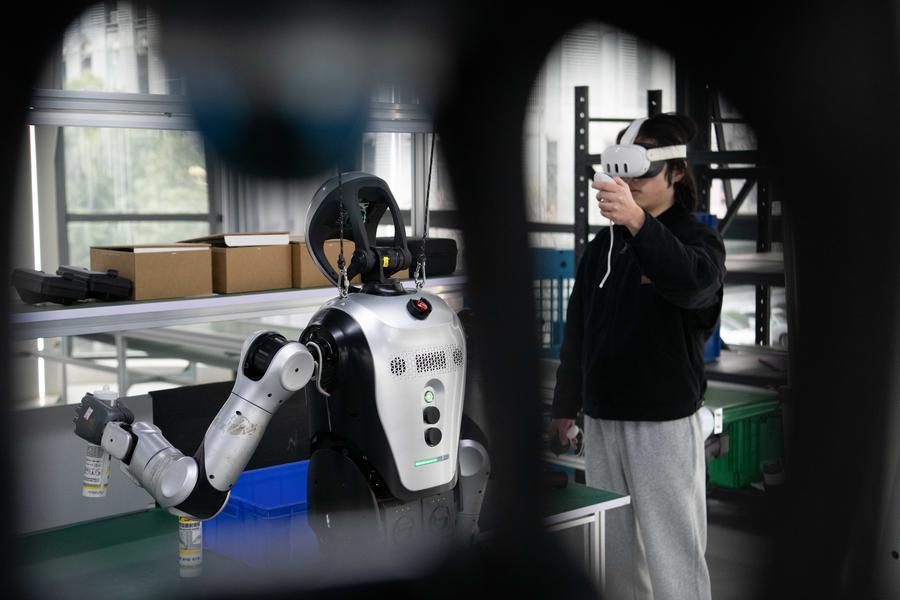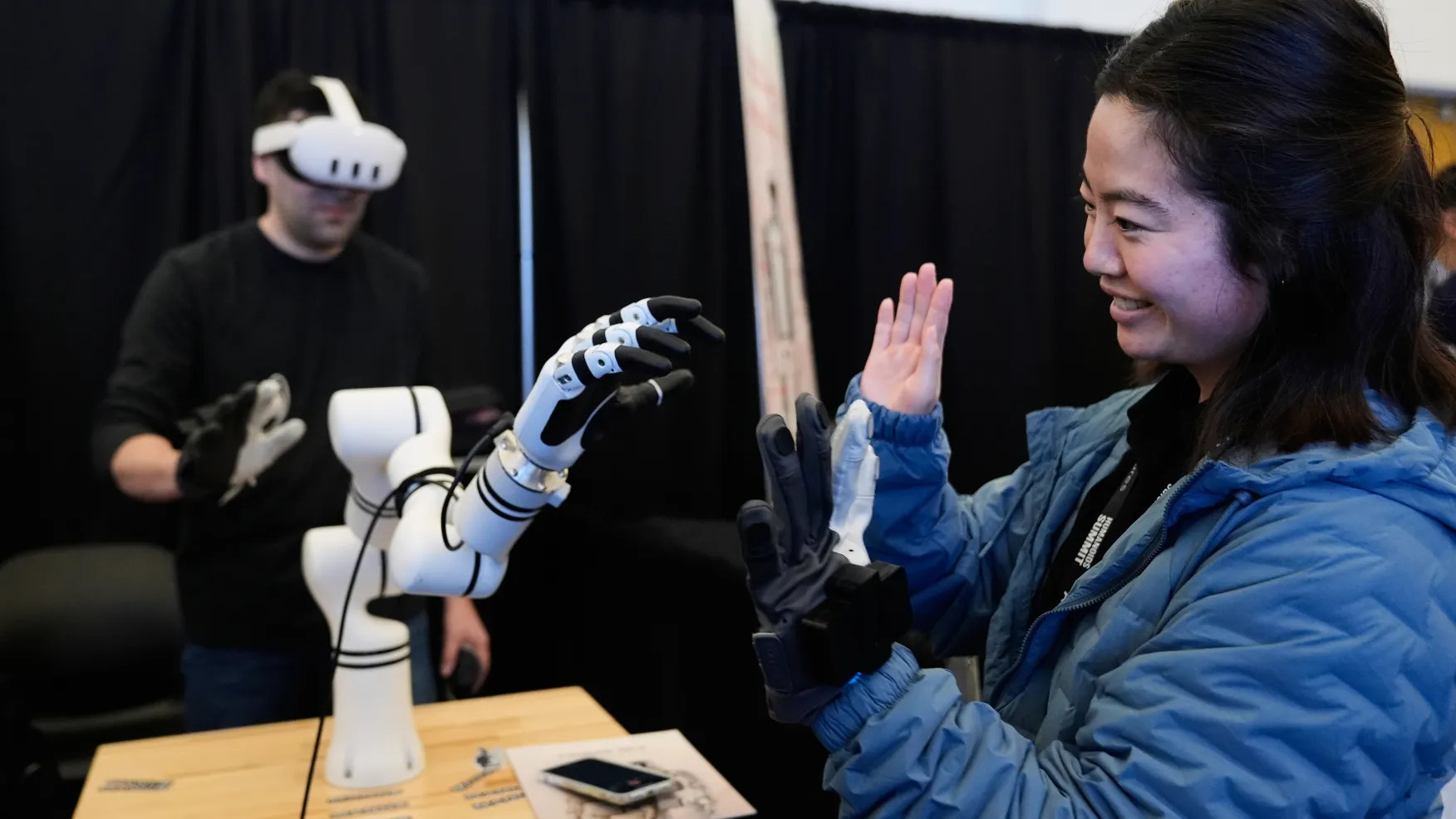Medtronic's Expand URO Study Achieves Landmark Success in Robotic-Assisted Urologic Surgery
Largest Robotic Surgery Clinical Trial Demonstrates Safety and Effectiveness of Hugo™ RAS System, Paving the Way for FDA Submission and Expanded Access to Minimally Invasive Care
Image Courtesy: Public Domain ; The Hugo™ RAS system from Medtronic is a modular, multi-quadrant platform for soft-tissue robotic-assisted surgery
Medtronic a global leader in healthcare technology, announced that the Expand URO Investigational Device Exemption (IDE) clinical study, the largest such study for robotic-assisted urologic surgery ever conducted, met both primary safety and effectiveness endpoints. The prospective, multi-center, single-arm IDE study included 137 patients who underwent urologic procedures using the Hugo™ robotic-assisted surgery (RAS) system.
The data, described by the American Urologic Association (AUA) as a "practice-changing, paradigm-shifting (P2) clinical trial in urology", was presented today at the AUA annual meeting in Las Vegas by Michael R. Abern, M.D., the study's national principal investigator and a urologic surgeon at Duke University Hospital in Durham, N.C.
"The study demonstrated that the Hugo RAS system met the safety and effectiveness endpoints, and the outcomes are consistent with published literature for robotic-assisted urologic surgery," said Dr. Abern. "Having performed the first case in the Expand URO clinical study, it's incredibly rewarding to see the results of this rigorous and important study in the field of robotic surgery."
About the Expand URO clinical study:
- On average, patients were approximately 63 years old and classified as American Society of Anesthesiologists (ASA) category ≥3, indicating they had severe systematic disease or condition impacting their overall health.
- 11 surgeons across 6 hospitals in the U.S. performed 3 types of urologic procedures — prostatectomies (prostate removal; n=55), nephrectomies (kidney removal; n=53), and cystectomies (bladder removal; n=29).
- The common patient cohorts were prostate cancer in prostatectomy, renal tumors in nephrectomy, and bladder tumors in cystectomy.
- The study was conducted with a high degree of rigor consistent with the FDA premarket requirements and included prospective enrollment and data collection, independent event adjudication by a Clinical Events Committee (surgeon advisory group), data monitoring and excellent follow-up compliance with approximately 98% of patients completing the 30-day follow-up.
- All cancer patients in the study will be followed for five years.†
Expand URO study primary endpoint data:
- Safety: The rates of grade 3 or higher complications (3.7% prostatectomy, 1.9% nephrectomy, and 17.9% cystectomy) were favorably below the performance goals (20% prostatectomy, 20% nephrectomy, and 45% cystectomy; p=0.0006, p=0.0001, p=0.0025, respectively), which were established based on systematic review of published literature across all three cohorts.
- Effectiveness: The study's 98.5% surgical success rate was well above the performance goal of 85% (p<0.0001), which was established based on a systematic review of published literature. There were two conversions: one was related to the device and one was related to patient anatomy.
"The Expand URO clinical study provides important clinical evidence about the Hugo RAS system and is an exciting milestone that brings us closer to our goal of offering surgeons in the U.S. long-awaited choice in robotic technology," said James Porter, M.D., chief medical officer, Robotic Surgical Technologies and Digital Technologies within the Surgical business, part of the Medical Surgical portfolio at Medtronic, and a urologic surgeon at Swedish Medical Center in Seattle, WA. "Surgeons want to deliver the best care to our patients and robotic technology is key to making that possible today by enabling minimally invasive surgery and leveraging technology that is shaping the future of surgery."
U.S. FDA submission for the Hugo RAS system
Medtronic also announced today that it submitted the Hugo RAS system to the U.S. Food and Drug Administration (FDA) for a urologic indication in the first quarter of calendar 2025.
The FDA submission is the company's latest milestone toward a planned entrance into the U.S., the world's largest robotic surgery market. In February, the company shared that it completed enrollment in both its hernia and benign gynecology (GYN) studies and received approval to start a new clinical study including oncologic GYN procedures — all in support of planned submissions to the FDA for additional indications beyond urology for the Hugo RAS system in the U.S.
Outside the U.S., the Hugo RAS system is in clinical use in more than 25 countries across 5 continents, with a growing body of evidence including more than 200 independent papers published to date.
Medtronic thoughtfully designed the Hugo RAS system — through collaboration with hundreds of surgeons and hospital leaders globally — with the goal of expanding access to minimally invasive care to more patients around the world. The Hugo RAS system delivers the benefits of RAS in a flexible, modular form factor and open surgeon console that supports communication among the surgical team. Paired with the Touch Surgery™ ecosystem, the Hugo RAS system offers a smart, connected surgical experience that is shaping the future of surgery.‡























